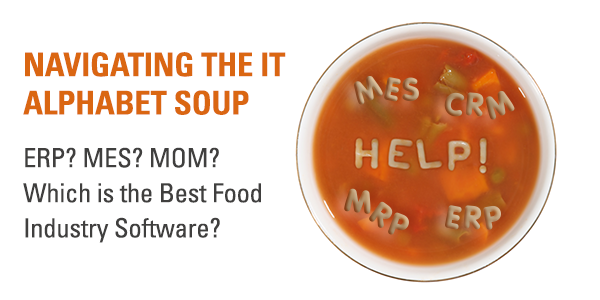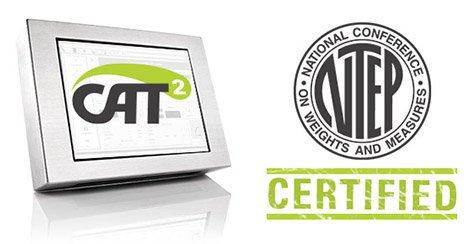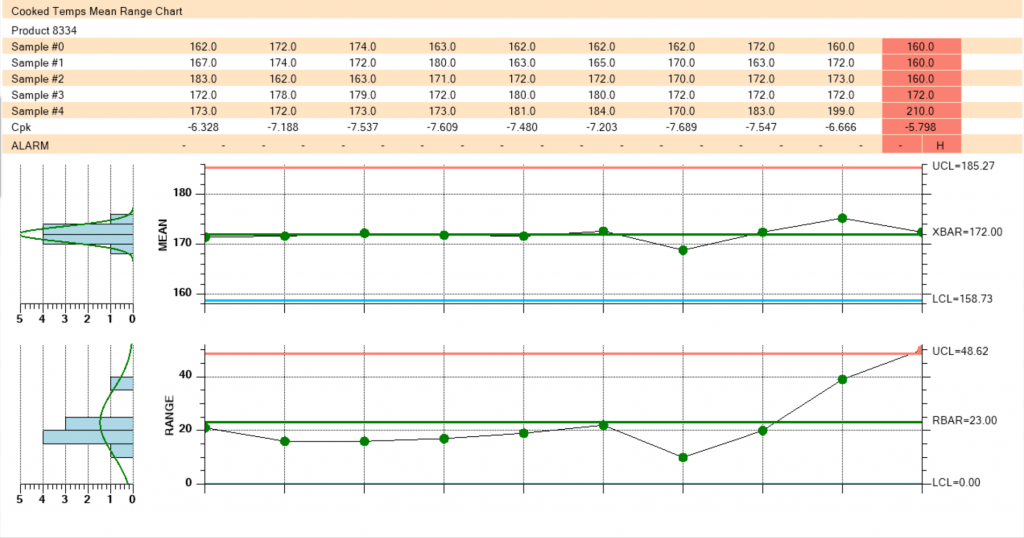Information technology has changed the face of traditional manufacturing. Every day, there seems to be a new buzzword defining another software category to help you manage your company’s data. But which kind of software system is best for your company? What software system will give you the best ROI? Do you need an ERP or an MES? Can an ERP function as an MES? What’s the difference? And while we’re asking these questions, can someone please define some of these acronyms?
With the myriad choices available, the technological landscape is challenging to navigate. Additionally, once you’ve selected any system, the amount of data collected and analyzed can be overwhelming and leads to more questions than answers. In this blog series, we will explore some of the most common types of manufacturing data systems used in the food industry, what they do, and how you can combine your systems to achieve maximum ROI.
First, let's start with defining some common acronyms used to describe types of data management systems used in manufacturing:
- CRM (Customer Relationship Management) software is used to manage sales relationships between businesses and customers. Its functions typically include storing customer data and contracts, marketing and lead tracking, sales automation and more. It’s an essential tool for businesses looking to grow and manage their client bases. (Note: Many of these functions have been incorporated into ERP systems.)
- ERP (Enterprise Resource Planning) systems connect data about a business’s various processes and share it across your network so it’s available anywhere. From accounting to inventory to production machinery, it integrates all business processes on the same database. Large and complex businesses rely on ERP systems to collect and compile their data in a single database that can be accessed companywide. (CAT Squared can integrate into a wide range of ERP systems. CAT Squared integrated into SAP for a project with Cargill Protein China, which saved over $1 million in the first year after implementation.)
- FSM (Field Service Management) software is used to manage a company's resources employed in the field. Some task examples include monitoring worker activities, locating equipment, managing parts inventory, and preserving an audit trail for full regulatory compliance. (NOTE: CAT Squared has integrated with FSM systems like Protean, but much CRM functionality is also being incorporated into ERP systems.)
- MES/MOM (Manufacturing Execution System {also known as Manufacturing Operations Management}) setups help monitor and manage work progress in factories. Automated input from machines on the factory floor keeps data accurate and allows managers to adjust operations to maximize workflow. MES tools improve productivity and efficiency and reduce cycle time. They can also help with inventory management and cost estimates. (NOTE: This is the area where CAT Squared specializes. The next article in this series will discuss how MES/MOM systems integrate with ERP systems to manage your plant floor operations.)
- MRP (Material Requirements Planning) software manages production planning, scheduling, and inventory control for manufacturing processes. (NOTE: Some of this functionality can be achieved in some ERP systems. CAT Squared achieves this functionality for ready-to-cook and ready-to-eat operations as well as other batch processes through our Production Control Module combined with our Mixing application.
- WMS (Warehouse Management System) tools track the vital functions and figures of a warehouse environment—everything from inventory levels and locations to incoming orders. WMS infrastructure is a key piece of supply chain technology used to help manage warehouse operations efficiently and lower operational expenses.
In next month's post, we’ll explore in more detail what role these systems play in a manufacturing operation’s data ecosystem.
Which data management system is right for you? We can help. CAT Squared specializes in process optimization, automation, and continuous improvement for the food industry and has increased efficiency in processing plants around the world. Connect with us to learn more and schedule a free demo.





